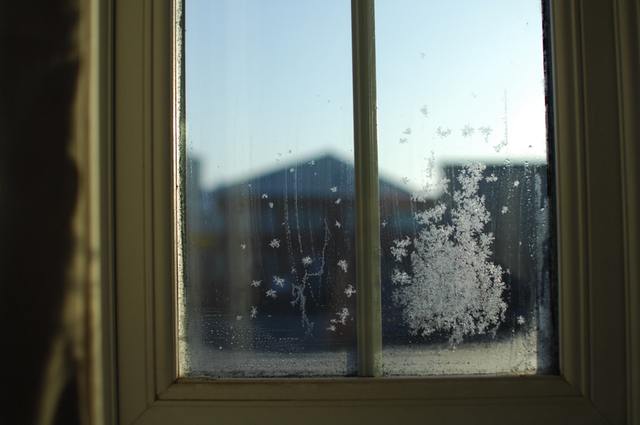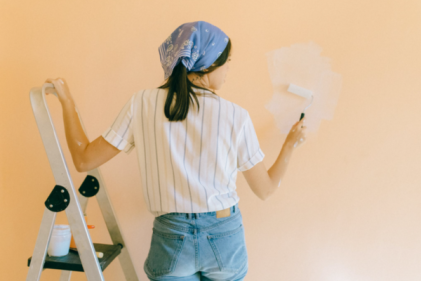Winter season is not very far, so in order to enjoy a warm cup of hot chocolate and watch the snow fall from the comfort of your couch, you need to make sure your house is protected from the cold season. Take advantage of the last warm days and start prepping your house, to greet winter with some peace of mind. The following maintenance tips are meant to get you covered and prepare your house for whatever mother nature may throw your way. Get started as soon as possible, to make sure winter catches you on guard.
Protect your pipes from freezing
The first thing you need to do is make sure your pipes can withstand the difficult weather that is coming. When it freezes, water expands and may damage the pipes. This can result in floods, which are the last thing you want to be dealing with during winter.
To prevent this, the first thing you need to do is drain all water from exterior faucets and sprinklers, as well as hoses. You can also look for insulators for outdoor faucets, to protect them from freezing temperatures. Make sure to insulate all pipes that run through unheated rooms, such as attic, garage or basement. Even if the pipes are not outdoors, they can still get damaged in case temperatures drop too low.
Indoors, it may be better to let your faucets slightly open, to allow water to flow through the pipes and prevent them from freezing. Don’t leave them open too much; a slow drip is all you need. If you don’t want to waste water, you can place a small bucket inside the sink and collect water for further use.
Cover your boiler
If you did not know this by now, your boiler can get insurance as well. Covering your boiler protects you from unpleasant situations, such as having your boiler break down in the middle of winter and not finding someone to fix it fast. Covering your boiler gives you access to a professional who can fix your boiler in case of emergency, as well as service, so you can prevent an issue from happening altogether.
Even if you have a new boiler, this does not mean you are protected from breakdowns, as they can happen at any time, especially during the first 6 years. Ensure that you cover your boiler as soon as possible, as companies are usually reluctant to provide insurance for equipment over 7 years old.
Boiler cover comes in many types, depending on the type of service you need and the age of your boiler. Insurance is not expensive either, so it is not something that will damage your finances. They can start just under £10, such as the boiler cover from Corgi HomePlan, and they usually don’t go over £20.
Seal around doors and windows
Even the smallest holes in your walls can contribute to the temperature inside the house dropping a few degrees, so make sure that, before it gets cold, you check the walls for holes, especially near door and windows.
In time, natural gaps can occur, so even though you insulated your doors and windows years ago, it may be worth double checking the areas. You can use insulation foam to seal the gaps, as well as weather stripping, to ensure that no freezing wind passes through. Check cable or phone line holes as well, to ensure they were correctly covered up and sealed.
Ensuring that no cold air passes through can drop your heating bill quite significantly and keep the temperature inside the house nice and steady. This way, you will end up saving money and being conscious about energy waste.
This is a trick that will cost you close to nothing, as insulation foam is quite inexpensive and expands to cover even larger gaps. You can do it yourself and then simply use sandpaper to even out the surface. Some plaster and wall paint will help cover up the area and make it blend into the wall.
Pay attention to the gutters and roof
If your gutters are full, there is a higher chance for ice to form on the roof and really damage it. Clean your gutters during autumn, to avoid such situations and allow water to pass through without freezing. Leaves, dirt and other messy things can hide inside your gutters and form blockages, where water will sit and get a higher chance to freeze. Ice can get very heavy and even cause for the gutters to break or fall.
The roof needs to be checked as well, to make sure no cracks are letting the cold air or, even worse, water, pass through. At the same time, make sure that your attic is properly ventilated and kept cool, to prevent ice damage. If the temperature in the attic is too high, it can cause ice and snow to melt and cause damage to the house.
If you fear that by keeping the attic cold, the temperature inside your house will also drop, you can insulate the attic floor, to keep cold from entering your house and heat from going up.
Insulate your house
Insulating the entire house can get quite expensive, but it is one of the best investments you can make. Insulation can take a while to get done, so make sure you start during summer or early autumn, to ensure that cold weather does not catch you off guard.
Insulate the exterior walls, as well as the ceiling of your basement and floor of your attic, to conserve heat during winter and also keep the cool air in during summer. This is an investment that you will benefit from all year round, so make sure you do it properly.
Insulating your house can significantly reduce heat bills during winter and energy bills during summer, when you won’t have to keep your AC running all day long. The attic can be insulated by using blow-in insulation, which is much easier and time-efficient to get done.












